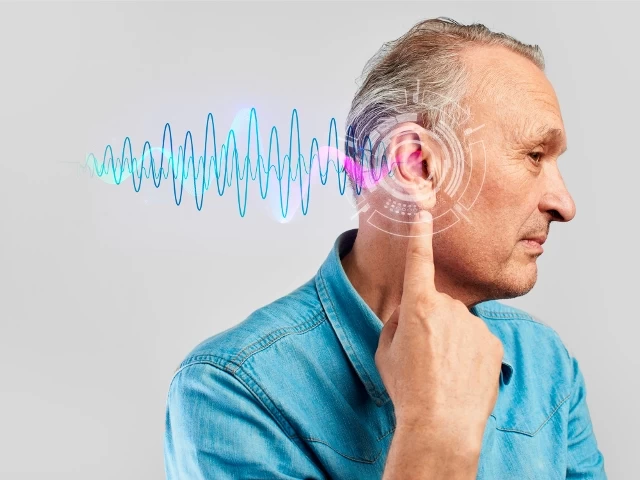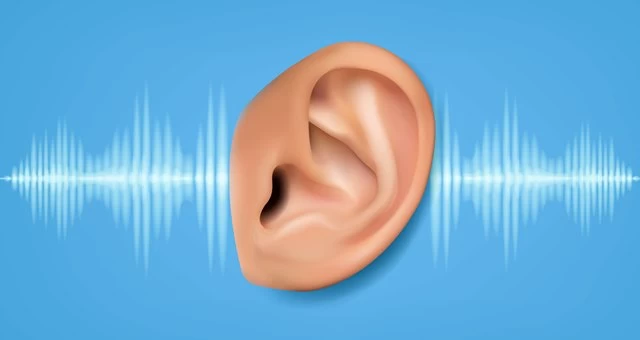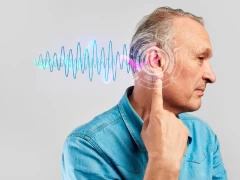
Tinnitus: Causes, Symptoms, and Treatment
- Tinnitus: Causes, Symptoms, and Treatment
- What is Tinnitus?
- What Are the Causes of Tinnitus?
- What Are the Symptoms of Tinnitus?
- What Are the Treatment Methods for Tinnitus?
- Conclusion
What is Tinnitus?
Tinnitus is a common problem that many people experience in their lives. It refers to the sensation of hearing ringing or buzzing sounds in the ears, which can be constant or intermittent. Tinnitus can affect daily activities, sleep patterns, and overall quality of life. So, what causes tinnitus? What are its symptoms, and is there a treatment available? You will find the answers to these questions in the following paragraphs.
What Are the Causes of Tinnitus?
There can be various underlying causes of tinnitus. Here are some of the most common ones:
- Hearing loss: Hearing loss is one of the most frequent causes of tinnitus. When the auditory nerve is damaged or the function of the inner ear is impaired, the brain can generate a sensation of ringing in the ears.
- Exposure to loud noises: Prolonged exposure to high noise levels can lead to tinnitus. Situations such as concerts, explosive sounds, or listening to loud music can harm the inner ear and result in a ringing sensation.
- Ear infections: Ear infections are another factor that can cause tinnitus. Conditions like middle ear infections or outer ear infections can lead to ringing in the ears, accompanied by pain, hearing loss, and other symptoms.
- Stress and anxiety: Stress has negative effects on the nervous system. It can exacerbate the severity of tinnitus or contribute to its occurrence.
- Tinnitus: Tinnitus, also known as ringing in the ears, is a condition where a person perceives ringing, buzzing, hissing, or whistling sounds in the ears. It occurs due to abnormalities in the inner ear or the auditory nerve and is often associated with hearing loss.

What Are the Symptoms of Tinnitus?
The symptoms of tinnitus can vary from person to person, but the following are the most common ones:
* Hearing ringing, buzzing, hissing, or whistling sounds in the ears
* Experiencing hearing loss or difficulties in hearing
* Headaches or dizziness
* Problems with concentration, lack of focus, or sleep disturbances
* Symptoms of anxiety, restlessness, or depression
Individuals experiencing these symptoms should seek medical attention and undergo a thorough evaluation.
What Are the Treatment Methods for Tinnitus?
The treatment of tinnitus primarily relies on identifying the underlying cause. Here are some common methods used to manage tinnitus:
- Hearing aids: For individuals experiencing tinnitus due to hearing loss, using hearing aids can be beneficial. Hearing aids are designed to correct hearing loss and reduce the perception of tinnitus.
- Tinnitus maskers: Tinnitus maskers provide relief by masking the sounds caused by tinnitus. These devices emit different sound signals to the brain, suppressing the ringing sensation.
- Stress management: Stress and anxiety can worsen tinnitus. Therefore, employing stress management techniques, relaxation exercises, or therapies can help reduce the severity of tinnitus.
- Medications: In some cases, healthcare professionals may recommend medication. For example, if there are accompanying symptoms such as anxiety, depression, or sleep disorders, medications can assist in alleviating the symptoms.
It's important to note that tinnitus can vary for each individual, and not every treatment may work for everyone. Therefore, consulting a healthcare professional to receive an accurate diagnosis and develop an appropriate treatment plan is crucial.
Conclusion
Tinnitus is a common problem experienced by many individuals. It can occur due to various reasons, including hearing loss, exposure to loud noises, ear infections, stress, and tinnitus itself. While the symptoms may vary from person to person, common indicators include hearing loss, concentration difficulties, and anxiety. The treatment of tinnitus relies on identifying the underlying cause and may involve methods such as hearing aids, tinnitus maskers, stress management, and medication. It is important for individuals experiencing tinnitus to consult a healthcare professional to explore suitable treatment options.






